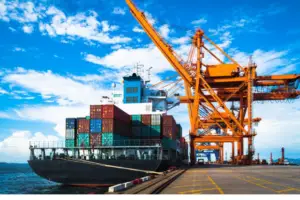Are you an aspiring business owner and resident in South Africa? This article will give you insight on what to expect in business as it contains information on threats to Businesses in South Africa.

Introduction
In the ever-evolving world of business there are risk factors that threaten the growth of businesses. The level of threat is dependent on the location, economy and industry. South Africa stands as a unique environment where opportunities and challenges coexist. So, it is therefore important to note that where there are challenges, there are also opportunities. South Africa’s resilient and innovative business community continues to find ways to thrive in this dynamic environment. They adapt to economic fluctuations, engage with policymakers to navigate the complexities
In this article, we will be looking at factors that threaten businesses in South Africa[2]. This is to make you aware of what to expect as a business owner in South Africa and how best to deal with these threats
7 Threats to a Business in South Africa
Here are common threats your business will likely face in South Africa:
1. ECONOMIC INSTABILITY

South Africa’s economy has faced challenges such as high inflation rates, currency volatility, and slow GDP growth. High inflation can erode purchasing power, making it more expensive for businesses to operate. Because of currency fluctuations import costs and export competitiveness are majorly affected. On the other hand, slow GDP growth can limit market opportunities and consumer spending. To mitigate economic instability, businesses often employ strategies like hedging against currency risks, diversifying revenue streams, and closely monitoring inflation trends.
2. POLITICAL UNCERTAINTY
Political instability, corruption, and abrupt policy changes can create a challenging business environment. Sudden shifts in government leadership or policies can disrupt established business plans and investments. Businesses may mitigate this risk by closely monitoring political developments, engaging with government stakeholders, and diversifying their operations across different regions or countries.
3. SUPPLY CHAIN AND PROCUREMENT

In an increasingly interconnected global economy, supply chain and procurement management play pivotal roles in the success and sustainability of businesses.
These are two crucial components of the business operations that involve managing the flow of goods and services within an organization and between suppliers and customers.
Supply chain refers to the entire network of organizations, people, activities, information, and resources involved in the creation and distribution of a product or service from its initial production stage to its delivery to the end consumer. The major components include suppliers, producers and end-users.
Procurement on the other hand refers to the process of acquiring the goods, services, or raw materials a company needs to operate and fulfill its objectives. The key components of procurement include sourcing, negotiation, purchasing, cost management, etc.
Ways supply chain can be a threat to business
Having understood what these two components entail, let’s see how supply chain and procurement can pose a threat to businesses.
Here are ways they are threat to businesses in South Africa:
i. Infrastructure and Transportation Challenges:
South Africa’s transportation infrastructure, while developed in some regions, faces significant challenges in others. The country’s vast size and often inadequate road and rail networks can lead to delays, increased transportation costs, and difficulties in moving goods from suppliers to consumers. These issues can disrupt supply chains, affect timely deliveries, and lead to higher operational costs for businesses.
ii. Exchange Rate Volatility:
South Africa’s currency, the Rand, is subject to fluctuations in exchange rates. For businesses that import or export goods, these currency fluctuations can impact the cost of materials, pricing strategies, and profitability. Companies often employ hedging strategies to manage these risks but may still be exposed to currency-related threats.
iii. Energy Supply Reliability:
South Africa has experienced power shortages and rolling blackouts due to challenges within its energy sector. For businesses, especially those reliant on consistent energy supply for manufacturing and operations, these disruptions can lead to downtime, decreased productivity, and potential financial losses. Companies often need to invest in backup power solutions to mitigate this threat.
iv. Skills Shortages:
Skilled procurement and supply chain professionals are essential for efficient operations. South Africa, like many countries, faces skills shortages in these areas. Businesses may struggle to find and retain talent, which can lead to inefficiencies and disruptions.
4. DISRUPTIVE TECHNOLOGY

Disruptive technology, characterized by innovations that significantly alter traditional business models and markets, poses both opportunities and threats to businesses worldwide, including those in South Africa. This can reshape industries, create new competitors, and necessitate rapid adaptation.
How can technology be a threat to businesses in South Africa?
Here, are ways disruptive technology can be a threat to businesses in South Africa,
i. Access to Technology:
Disruptive technologies often require substantial investment in research, development, and infrastructure. In South Africa, where access to advanced technology can be limited, businesses may struggle to keep up with global competitors.
ii. Increased Competition:
Disruptive technologies [1] can lower barriers to entry, allowing new, tech-savvy startups to challenge established businesses. For instance, ride-sharing platforms like Uber and food delivery apps like Uber Eats have disrupted traditional taxi and restaurant industries globally, impacting local businesses in South Africa.
iii. Financial Services Disruption:
Fintech innovations, such as mobile banking and peer-to-peer lending, have disrupted traditional banking models in South Africa. These technologies offer financial services to previously underserved populations but can challenge established banks.
To thrive in this digital era, companies must invest in technology adoption, innovation, and workforce development while remaining vigilant about emerging disruptions.
5. REGULATORY RISK
Regulatory risk is a significant threat that businesses in South Africa, as in many other countries, contend with regularly. It refers to the potential negative impact on a business due to changes in laws, regulations, policies, or government actions. This threat can disrupt operations, increase compliance costs, and affect a company’s overall profitability and reputation.
South Africa has seen frequent changes in regulations and policies, particularly in areas such as labor, taxation, and mining. Regulatory uncertainty can make it challenging for businesses to make long-term plans and investments, leading to hesitancy among investors and business owners.
Moreso, meeting regulatory requirements often comes with additional costs, including legal fees, compliance officers’ salaries, and necessary infrastructure investments. Smaller businesses, in particular, may struggle to bear these costs, impacting their competitiveness.
South Africa also has complex labor laws, and changes in labor regulations can impact businesses’ ability to hire, fire, and manage their workforce. Compliance with labor laws is essential but can be a challenge, especially for small and medium-sized enterprises (SMEs).
Frequent changes in these regulations and the bureaucracy involved in compliance can create uncertainty and increase administrative burdens on businesses. Many businesses have shut down due to this challenge.
Regulatory risk is a complex and ever-present threat to businesses in South Africa. To navigate this landscape successfully, businesses must stay informed about regulatory developments, maintain strong legal counsel, and adopt a proactive approach to compliance. Additionally, they should engage with industry associations and government bodies to advocate for regulatory stability and transparency, ultimately fostering a more favorable business environment.
6. CRIME AND SECURITY
High crime rates, including theft, burglary, and cybercrime, pose significant security threats. Physical theft can lead to losses in inventory, while cybercrime can compromise sensitive data. Businesses invest in security measures, such as surveillance systems and cybersecurity protocols, to protect their assets. Additionally, some companies opt for insurance coverage against theft and cyber attacks.
7. SOCIOECONOMIC INEQUALITY
Some years back, there was Xenophobic attack in the country which led to multiple killings. Imagine the losses a lot of businesses recorded then. South Africa’s significant socioeconomic disparities can lead to social unrest and this can affect business operations in certain areas. Engaging in corporate social responsibility initiatives and community development programs can help businesses contribute positively to the communities in which they operate and address inequality issues.
Conclusion
Considering the numerous threats to businesses, South Africa’s business landscape is a testament to the resilience and determination of its entrepreneurs and corporations. By addressing these common threats ranging from Political instability, regulatory, technical and procurement challenges, with strategic planning, adaptability, and a commitment to ethical and sustainable practices, businesses in South Africa can continue to blossom and contribute positively to the nation’s economic growth and social progress.
References
[1] “No Title.” Google.com, https://www.google.com/url?sa=t&source=web&rct=j&opi=89978449&url=http://www.ijarp.org/published-research-papers/nov2018/Disruptive-Innovation-A-Case-Study-Of-Uber.pdf&ved=2ahUKEwjJ5uja3d2BAxUMuaQKHbVlB4AQFnoECBYQAQ&usg=AOvVaw3ys-_Y__SX9gWbrpn3qZpg. Accessed 5 Oct. 2023.
[2] “The Biggest Threats to Business in South Africa Right Now.” BusinessTech, 19 Nov. 2022, https://businesstech.co.za/news/business-opinion/643065/the-biggest-threats-to-business-in-south-africa-right-now/.
Don’t miss out on current updates, kindly like us on Facebook & follow us on Follow @EAfinder OR leave a comment below for further inquiries





